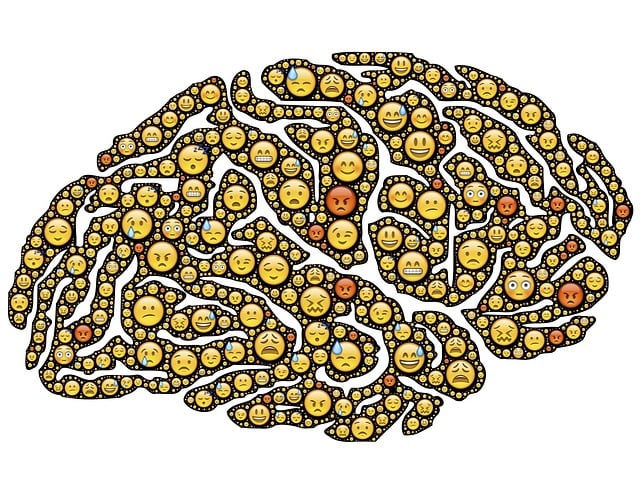Media representation significantly impacts societal views of mental health, with positive, accurate portrayals reducing stigma and encouraging help-seeking behaviors. In Colorado Springs, Christian Counseling Therapy (CSCT) leads efforts against mental illness stigma through spiritual support, tailored therapy, journaling exercises, community outreach programs, and robust risk management planning. The media industry is shifting towards more authentic portrayals of mental illness, collaborating with professionals like CSCT to challenge stereotypes and promote healthier understandings. These collaborative partnerships extend to community engagement, offering workshops on coping skills and social development, empowering individuals to manage their mental health challenges effectively.
In today’s media-driven world, the representation of mental illness significantly shapes public perception. This article explores how entities like Colorado Springs Christian Counseling Therapy are challenging stigmatized narratives and promoting positive change. We delve into the impact of media on mental health, examine current efforts to combat stigma, and uncover strategies for enhancing accurate, helpful, and diverse portrayals of mental illness in popular culture. By fostering collaborative efforts, we aim to revolutionize how society understands and supports individuals living with mental health conditions.
- Understanding the Impact of Media Representation on Mental Health Perception
- The Current State: How Colorado Springs Christian Counseling Therapy Addresses Stigma
- Strategies to Enhance Positive Mental Illness Portrayal in Media
- Fostering Change: Collaborative Efforts for Accurate and Helpful Depictions in Popular Culture
Understanding the Impact of Media Representation on Mental Health Perception

Media representation plays a pivotal role in shaping societal perceptions about mental health. The way mental illness is portrayed in films, television shows, and news media can significantly influence how individuals understand and respond to these conditions. Positive and accurate representations can foster empathy, encourage help-seeking behaviors, and promote emotional well-being promotion techniques. Conversely, negative or stereotypical depictions may perpetuate the stigma associated with mental illness, leading to increased social isolation and barriers to access Colorado Springs Christian Counseling Therapy for those in need.
By presenting diverse narratives and challenging harmful stereotypes, media can contribute to crucial mental illness stigma reduction efforts. Accurate representations that showcase the complexities of mental health experiences, without sensationalism or pathos, can help viewers develop a more nuanced understanding. This shift in perception may encourage open conversations about mental health, making it easier for individuals to recognize their own struggles and seek appropriate support, including Colorado Springs Christian Counseling Therapy options tailored to their unique needs.
The Current State: How Colorado Springs Christian Counseling Therapy Addresses Stigma

In Colorado Springs, Christian Counseling Therapy (CSCT) is at the forefront of challenging mental illness stigma through comprehensive initiatives. With a deep understanding that mental health issues often go hand in hand with spiritual struggles, CSCT offers unique support tailored to individual needs. They recognize the power of community and education as key tools to dispel myths and foster empathy. Through their Mental Wellness Journaling Exercise Guidance, clients are encouraged to document their journeys, fostering self-awareness and reflection.
Beyond individual therapy, CSCT implements robust Community Outreach Program initiatives, aiming to raise awareness about mental health issues within diverse communities. They also emphasize professional development through Risk Management Planning, equipping therapists with strategies to create safe, supportive environments. These holistic approaches demonstrate CSCT’s commitment to not only treating mental illness but also transforming societal perceptions, ensuring individuals feel understood and supported on their path to recovery.
Strategies to Enhance Positive Mental Illness Portrayal in Media

In representing mental illness in media, a shift towards positive and accurate portrayals is essential. This involves collaborating with mental health professionals like those available at Colorado Springs Christian Counseling Therapy to ensure authenticity. By integrating real-life experiences and seeking advice from experts, media creators can challenge stereotypes and offer nuanced perspectives. Encouraging emotional regulation and self-care practices within these narratives promotes a healthier understanding of mental wellness among audiences.
Additionally, depicting diverse characters with varying mental health journeys can contribute to breaking down stigma. This includes showcasing recovery stories alongside ongoing struggles, emphasizing that mental illness is complex and unique for each individual. Such representations not only educate but also foster empathy, encouraging viewers to approach mental health issues with openness and support rather than fear or judgment.
Fostering Change: Collaborative Efforts for Accurate and Helpful Depictions in Popular Culture

In the quest for accurate and compassionate mental illness representation in media, collaborative efforts between professionals, artists, and communities are key. Colorado Springs Christian Counseling Therapy has been at the forefront of advocating for nuanced portrayals that not only reflect the diversity of lived experiences but also offer hope and guidance to viewers. By bringing together experts in psychology, media studies, and creative storytelling, we can foster a shift towards more realistic and helpful depictions. This collaborative approach ensures that stories not only entertain but also educate, challenging stereotypes and promoting empathy.
These partnerships extend beyond production houses and media networks; they involve community engagement and education initiatives. Programs focused on conflict resolution techniques, coping skills development, and social skills training can be integrated into media-related workshops and events. Such collaborative efforts not only enhance the quality of mental health representation but also empower individuals to navigate their own challenges with newfound understanding and support.
Mental illness representation in media is a powerful tool that can either perpetuate harmful stigmas or foster understanding and empathy. As discussed, Colorado Springs Christian Counseling Therapy is at the forefront of challenging negative stereotypes through collaborative efforts with media creators. By implementing strategies to enhance positive portrayal, we can create a more inclusive and supportive landscape for those dealing with mental health issues. Together, we can navigate towards a future where accurate and helpful depictions in popular culture become the norm, ultimately revolutionizing perceptions and improving access to care.














